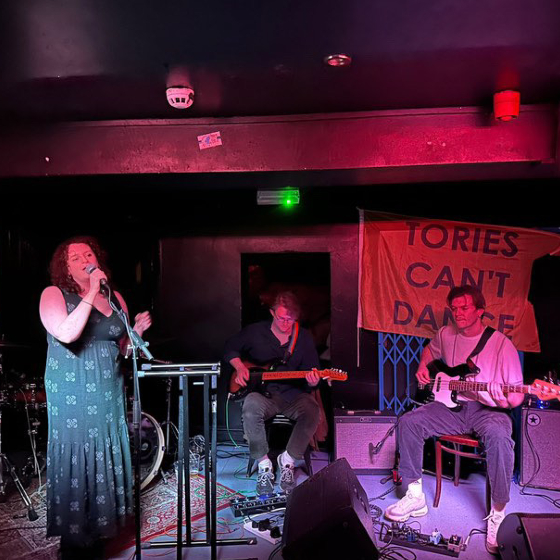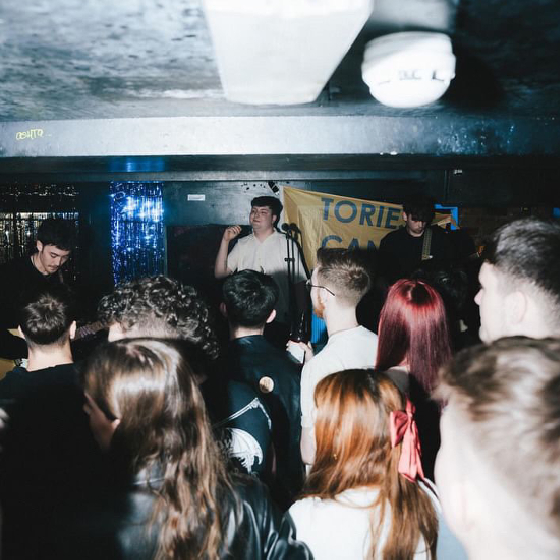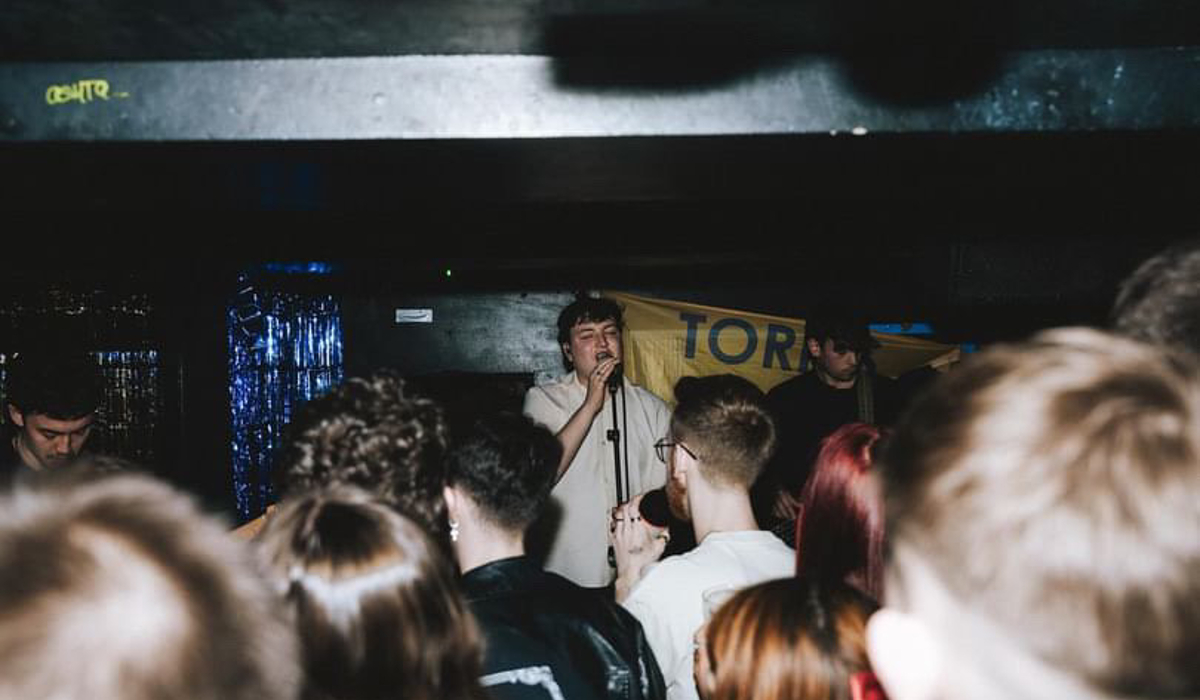MUSIC AS A PROTEST
Olive writes on how club spaces are used to bring about social change, using music as political protest and the people who have pushed for these changes throughout generations in Liverpool.
Music is a hospital.
I was watching Fatoumata Diawara in Manchester in January and she said this with complete conviction. She is an artist who has consistently pushed for social change, empowering communities and advocating for vulnerable people. Her words landed into the audience with clean clarity and we sat with them, with her.
Music is a vehicle for social change and the spaces in which we experience it matter. Music is a language, a catalyst, a map. Music is a hospital.
Through music we can express, protest and set in motion social changes which can aid both personal and societal healing. Within Liverpool, music has been a part of our cultural identity for generations. “Liverpool’s DNA is bound up in a tight double knot of musical mythology,” Jim Ottewill writes of Liverpool’s rave scene in How UK Cities Shaped Rave Culture. A city which also prides itself on its socialist values, with a consistent left wing political stance. Throughout history its musical output has reflected this, from punk to happy hardcore the underground has always been challenging the status quo.

“Much of [punk music]’s political dimension was subtle, complex and relatively non confrontational,” Roger Hill, radio presenter and local music advocate talks to me about the political impact of protest music during the 1980’s, “but as the 80’s went on messages appeared, causes were espoused and protests were used as the occasion for music and music the occasion for protest.” Punk music challenged the production of conventional rock and also the societal expectations that went along with it. “Folk and reggae had been mobilising critiques of government and its collusion with capitalism since their original days,” Roger adds.
Music from queer, black and hispanic communities has historically been written as a protest to oppression. House music blossomed from these communities during the 1980’s, a genre which later boomed in Liverpool during the 1990’s. Renowned club night Cream rocketed in popularity at this time with scousers adopting house music as their own. House was created for a unified dancefloor, though musically very different to punk it holds just as much political importance.
We should note here the risk popularisation of protest music poses and how this challenges its integrity, “the music industry […] likes protest as long as it sells” Roger criticises. Community serves more importance than industry, and this is reflected in our musical movements.
“Clubs, bands and crowds are embodiments of community and collaboration and shared experience,” Roger shares, “protest music added […] the confidence to speak out and the stronger alternative music added the legitimation of provocation.”
If we can use music as our political expression, and to protest political oppression, then the spaces in which we experience music becomes much more malleable than simply a place to get drunk and dance. They hold revolution.

Tories Can’t Dance is a monthly non-profit event held at the Jacaranda, platforming local talents and raising funds for selected charities. Promoters James McGowan and Megan Walder talk to me about their event. “We want to support social causes, pay artists fairly, and provide affordable gigs from people at a time when grass roots gig attendance is declining,” they tell me, “We also host people of [all] genres and ages, hopefully bringing together different people.”
This ethos is a reflection of the city itself. “Liverpudlians are principled people,” James explains, “I think these ideas resonate, particularly when the gigs themselves are effectively part donation.” Though rooted in social justice, Tories Can’t Dance is also laced with scouse wit, with hosts taking their politically charged name a little tongue in cheek, “Some Tories might be able to dance,” they share, “but we aren’t really welcoming them into our event.”
As seen with R3 Soundsystem’s ‘Rave Against Hate’ which took place outside Downing Street earlier in the year, the togetherness of community is a powerful tool when protesting the UK Government’s attempts to divide. “[Tories Can’t Dance] is a social connection,” Meg and James explain, “a community of people with common interests in music, in politics, and in life.”
In the dance, the labels our identity is organised into are recognised as only labels. Existing joyfully within a community which celebrates all people is in itself a protest. Whilst the UK government is filled with corruption, community is a lifeline. To be in spaces of acceptance strengthens not only our love but the belief that we have the power to resist hate. Music serves as our communication. Music stands for our movement. Music is our hospital.
Words by Olive Yoxall (She/They).




